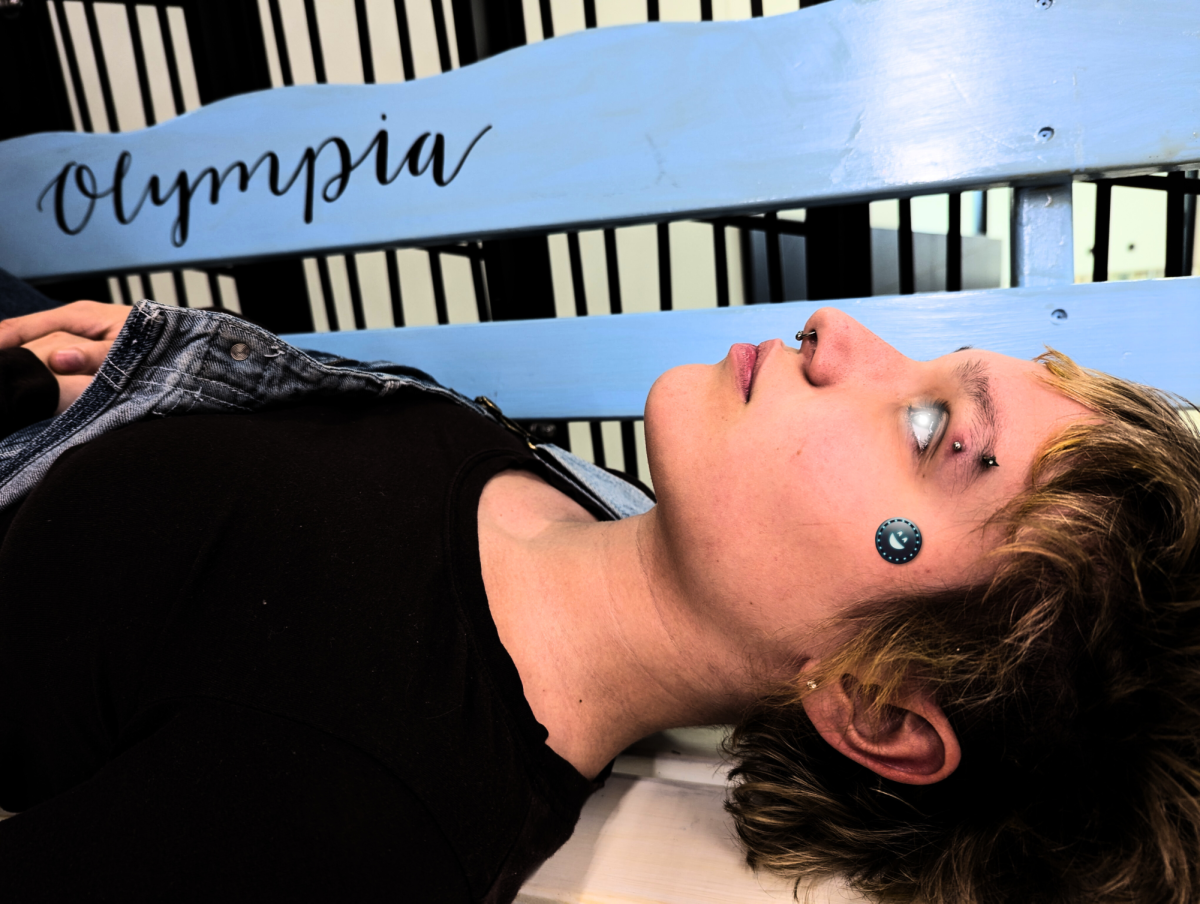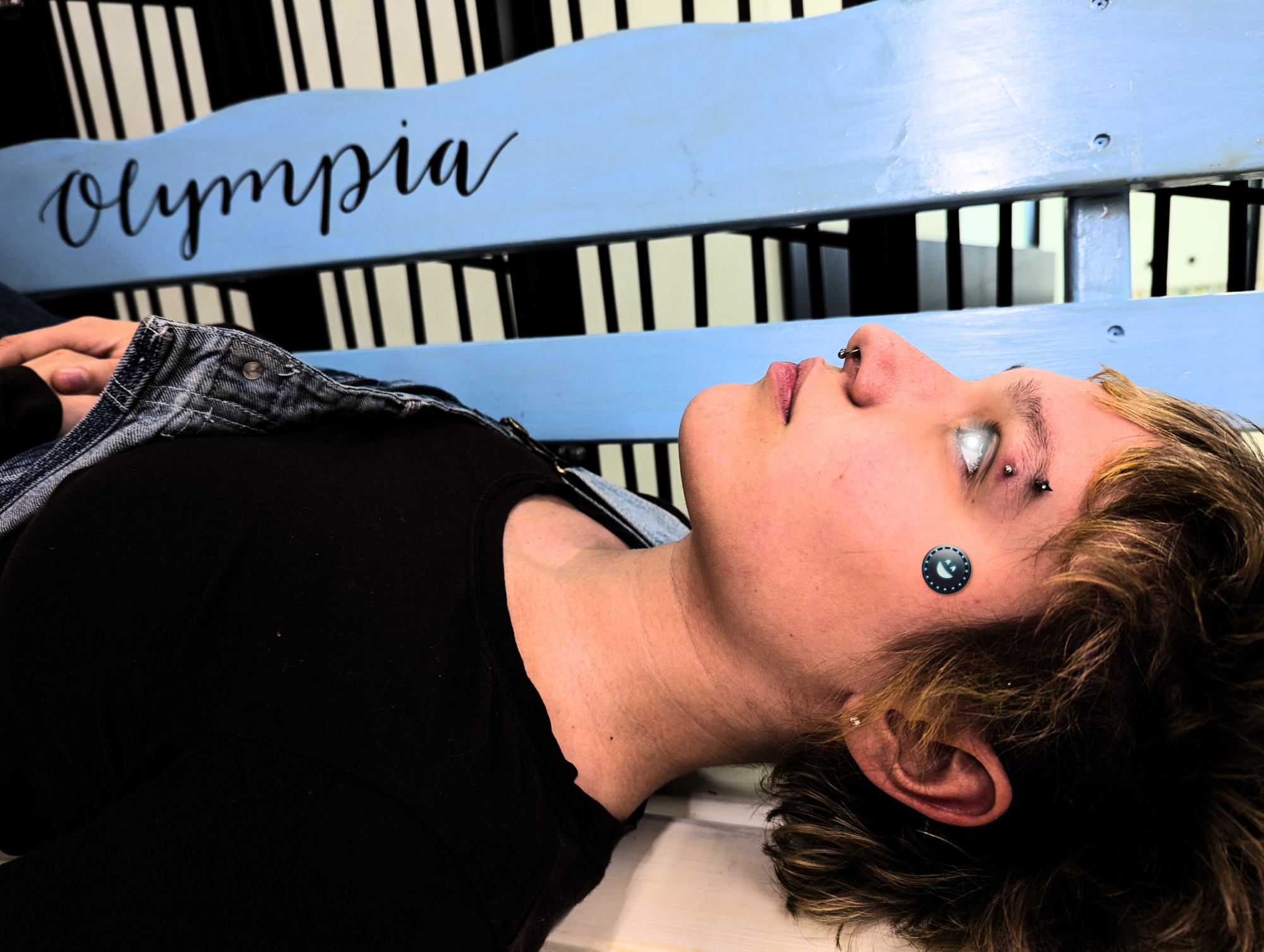Imagine a world where technology has an even bigger impact on society than today, so much so that it hinders society in the most twisted ways. Charlie Brooker’s Black Mirror highlights just that, and the show’s seventh season is out now on Netflix.
Black Mirror’s premise has always been the lasting effect of potentially harmful technology in the not-so-distant future. Though the fifth and sixth seasons seemed to have taken a slight detour from this overarching theme, season seven has sprung back into this niche fully, featuring six heartwrenching episodes that hit a little too close to home.

Common People
Subscription services are everywhere–it’s unavoidable. “Common People” explores a reality where the brutality of subscription services is tied to life itself. The story follows Amanda and her husband Mike, seemingly normal people living a quaint life in the suburbs. That is all turned upside down when Amanda is rushed to the emergency room. Mike finds out that she has a brain tumor and could be stuck in a coma for the rest of her life. Thankfully, a brand new experimental surgery is available that can save Amanda’s life–but not without a cost. The family is forced to pay over $300 a month to simply keep Amanda alive, and as the service evolves and begins to provide less for more, Amanda becomes a husk of the person she used to be. With a comedic beginning but a haunting ending, “Common People” is considered one of the best episodes this season.
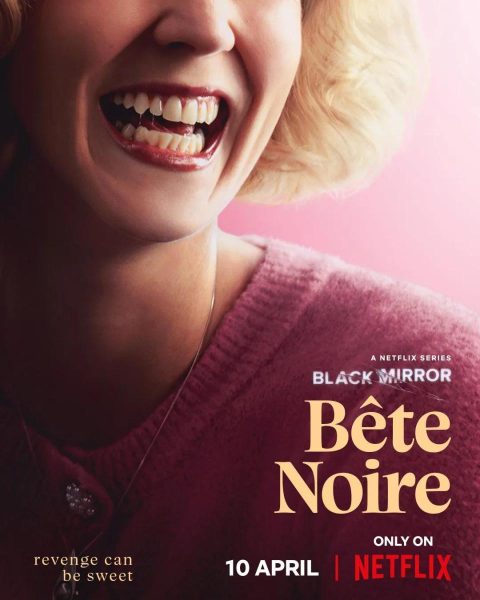
Bête Noire
Arguably the episode furthest from the recurring sci-fi genre of the show, “Bête Noire,” gaslights the audience and keeps them on their toes throughout the whole episode. Maria, the protagonist of the episode, is also a victim of being gaslit after running into an old acquaintance, Verity. Merely minutes into the episode, it’s clear that something is off with Verity, which is only strengthened when strange occurrences happen that make Maria (and the audience) second-guess what happened earlier in the episode. But while it’s a suspenseful and engaging start, the twist at the end seems somewhat out of place and rushed. The tech in the episode feels less sci-fi and more fantastical, and while that aspect doesn’t make it a bad episode, it takes away from the “Black Mirror” feel that’s present in the rest of the season.

Hotel Reverie
With the rise of character.ai and other platforms in which humans can chat with AI as if it were a real person, “Hotel Reverie” makes this experience into something physical. The story follows a fictional A-list actress named Brandy Friday, who’s looking to break free from her typecast and act in something different from the rest of her filmography. She gets hired for a remake of “Hotel Reverie” as a gender-bend of the male lead, but the filming style is not what she thinks. Instead of filming the movie traditionally, Friday is immersed in a fully digital version of the set with the other characters being AI caricatures. Though the filming starts on a good note, it quickly goes off the rails to the point where Friday falls in love with her AI co-star, Dorothy Chambers. This episode makes the audience question the relationship between humanity and AI in the most overt of ways, and it executes this idea flawlessly.
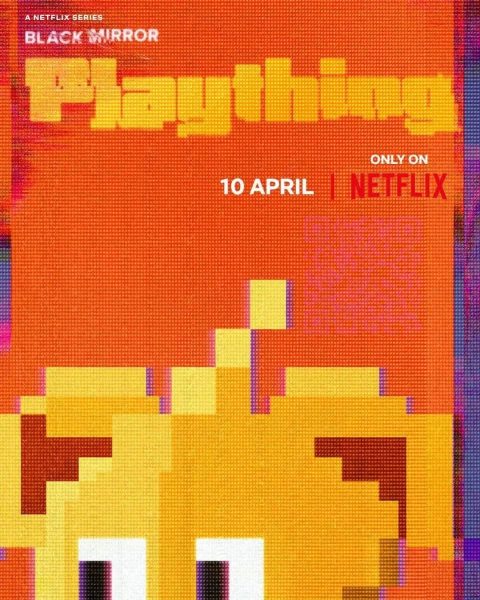
Plaything
This episode, similar to “Hotel Reverie,” explores the idea of digital life–but on a whole other level. The story follows Cameron Walker, who was caught shoplifting by the police. It’s revealed that he’s a subject of interest in an unsolved murder case of 30 years. He’s brought in for questioning, and Walker tells the long story of everything leading up to the murder, which mainly consisted of one thing: the Thronglets. A PC game developed by Colin Ritman (from the interactive special “Bandersnatch”) with digital creatures that Ritman claims to be alive. The whole episode has the audience questioning whether Walker was right about everything he claims or just a crazed lunatic, with the ending being a twist that leaves the audience unsure of humanity’s fate.

Eulogy
By far the best episode of the season, “Eulogy” dives into the complexities of losing somebody you used to know. Philip, the protagonist of the episode, gets a call from a company called Eulogy and is informed that his ex-girlfriend, Carol, has passed away. The company wants his help to compile any possible photos and memories Philip may have of Carol. He complies, and thanks to Eulogy’s advanced futuristic technology, Philip is able to go inside his old Polaroid photos and walk around in them. But as he explores deeper and deeper down the rabbit hole, it’s revealed that his relationship with Carol had not ended well. A truly heart-wrenching love story gone wrong, “Eulogy” is a gem in the Black Mirror universe and an episode worth watching.
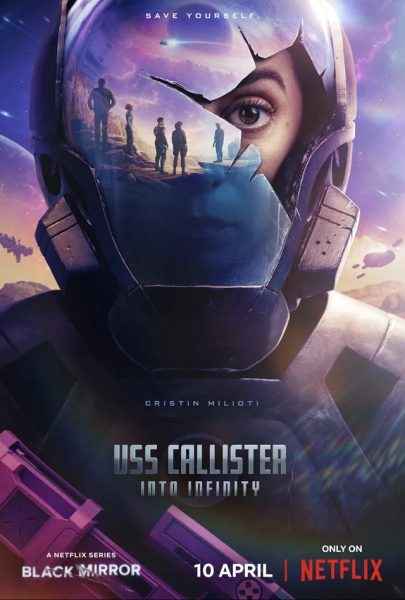
USS Callister: Into Infinity
This was the sequel that no one knew they needed. “USS Callister: Into Infinity” is the successor of “USS Callister” (from season four) and follows the story of Nanette and her digital clone from the episode’s predecessor. This episode is hard to explain in words because so many different events happen throughout the episode, but it is truly an epic saga worth watching. It isn’t often that a sequel surpasses its predecessor in quality, but “USS Callister: Into Infinity” does this spectacularly. From multiple unexpected twists to a bittersweet ending that evokes a sense of hope for the future of the characters, “USS Callister: Into Infinity” is on par with “Eulogy” in terms of quality.
Black Mirror has truly come back in full swing. With quality stories, amazing acting performances and out-of-this-world concepts, not a single episode fails to deliver. Haunting, melancholic, action-packed, and riveting, Black Mirror is a great watch for those who love standalone stories that hit hard on the soul, especially season seven.






















